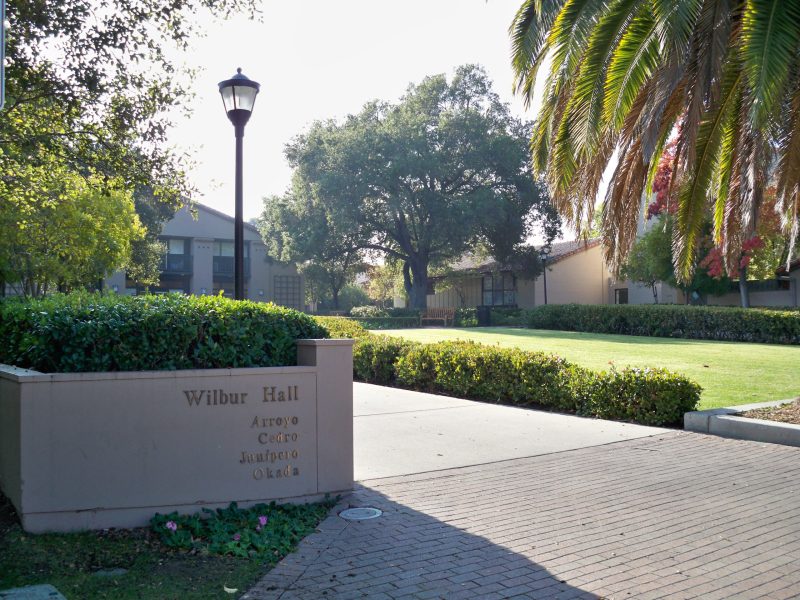University officials and student leaders announced their intention to “begin a discussion” about the “Secret Snowflake” campus tradition following complaints, including some directed to the Title IX Office, about dares that “crossed boundaries of good citizenship” and involved violations of sexual harassment policies.
The announcement came Wednesday afternoon in an email signed by Associated Students of Stanford University (ASSU) President Erica Scott ’20, ASSU Vice President Isaiah Drummond ’20, Vice Provost for Student Affairs Susie Brubaker-Cole and Senior Associate Vice Provost for Institutional Equity and Access Lauren Schoenthaler.
The ASSU and the University’s Student Affairs and Institutional Equity divisions are commissioning a committee to “evaluate Secret snowflake, to make recommendations about whether it should continue and if so, to recommend modifications to ensure this tradition is not a tool for harassment, but rather a means for building community and belonging,” the announcement states.
Secret Snowflake is a Stanford tradition that typically takes place in freshman dorms at the end of fall quarter. Students who sign up are matched with a “Secret Snowflake” in their dorm who gives them a “task” or dare each day for a week. Tasks are based on the “level” that the student selects when they agree to participate and can include activities like eating dinner with no hands or yelling profanities in public. Completion of every task is rewarded by a gift at the end of the week and the revelation of the Secret Snowflake’s identity.
“Most Secret Snowflake exchanges achieve the intended result of bringing students together,” the announcement stated. It expressed concern about the tradition, however, based on “both informal complaints to the residential staff and formal complaints to the Title IX Office” in recent years.
“We’ve heard examples of students feeling pressured to engage in overly sexualized conduct, of students sending sexual overtures to unwitting targets and of students trying to get unwitting targets to engage in sexual conversations that were later made public without permission from the targets,” the announcement reads.
The email also pointed out that the “targets” of dares may have no “control over or knowledge” over their involvement in the activity.
According to the email’s authors, the tradition by nature “facilitates harassing behaviors.”
The announcement pointed to Full Moon on the Quad (FMOTQ) — which started in the early 1900s — as an example of a tradition that has evolved with community standards, calling a previous version of the event a “kissing free-for-all that raised concerns about alcohol overuse and sexual assault.”
In 2016 a committee met to evaluate that tradition (FMOTQ), resulting in modifications to the class such as holding it during winter quarter, prohibiting intoxicated individuals from entering and shifting the focus of the event to stress “gratitude and affirmative consent.”
Another tradition recently reviewed by the University was Crossing the Line (CTL). Started in the 1980s and overseen by the Diversity and First-Gen (DGen) Office, CTL had first-year students gather in their dorms and prompted them to “cross the line” by stepping forward if statements about identity, background or behavior read out loud applied to them. After a critical Daily op-ed, the activity was discontinued by the University last fall due to student concerns about being required to disclose aspects of their identity in a public setting, according to Student Affairs spokesperson Pat Harris.
The announcement stated that recent incidents warranted a review of Secret Snowflake, similar to the reviews held for FMOTQ and CTL. The committee will include students nominated through the Nominations Commission, student staff members, resident fellows and staff members from Residential Education, the Title IX Office and the Office of Alcohol Policy and Education. The announcement invited students interested in serving on the committee to contact Chief of Staff and Assistant Vice Provost for Strategy Jennifer Calvert and shared a form for students to provide feedback on the tradition.
Contact Sarina Deb at sdeb7 ‘at’ stanford.edu.
